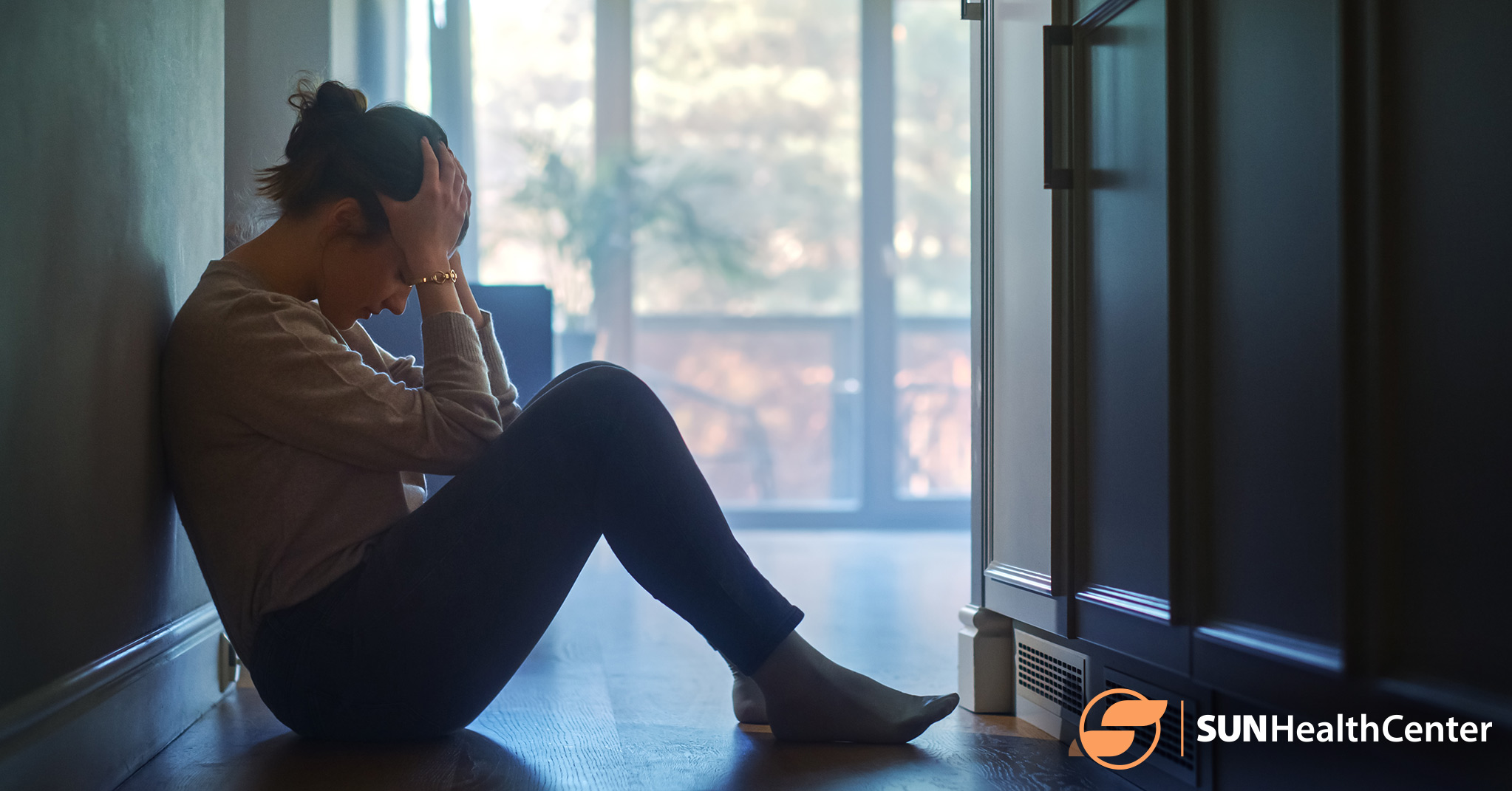
Depression is a common mental health issue. According to the National Institute of Mental Health, about 8.3% of American adults experienced at least one major depressive episode in 2021. For some people, depression can be debilitating, causing difficulties with completing everyday tasks such as going to work or preparing meals. Crippling depression makes it challenging to care for yourself or find relief from unpleasant symptoms, but help is available.
Keep reading to explore the signs and symptoms of crippling depression and how to cope with debilitating symptoms to improve your mood and overall well-being.
Understanding Crippling Depression
Crippling depression is a severe form of clinical depression that restricts an individual’s ability to function. It causes a prolonged low or depressed mood that interferes with completing daily tasks or pleasurable activities. Although crippling depression isn’t a formal clinical term, it’s often used to describe major depressive disorder (MDD).
MDD affects how individuals think, feel or behave, causing various emotional and physical symptoms. People with this condition experience at least one major depressive episode. This is defined as a 2-week period where symptoms are present most or all of the day, every day. Some people experience one episode, while others have recurring episodes.
Severe Depression Symptoms
Symptoms of crippling depression can affect your mood and physical health. Psychological symptoms include:
- Persistent feelings of sadness, emptiness or hopelessness
- Constantly feeling guilty, worthless or burdensome
- Loss of interest in pleasurable activities
- Feeling alone or isolated
- Difficulty concentrating or making decisions
- Irritability, frustration or agitation
- Fatigue or lack of energy
- Thoughts of death or suicide
Severe depression symptoms can also manifest physically as:
- Loss of appetite or overeating
- Weight fluctuations
- Digestive issues
- Sleep disturbances, such as sleeping too much or too little
- Body pains
- Headaches
Challenges in Practicing Self-Care With Crippling Depression
Crippling depression can cause feelings of despair, emptiness and low energy that make getting out of bed difficult, never mind going to work or completing tasks around the house. Practicing self-care becomes vital to improving your mental, emotional and physical health. However, crippling depression often makes self-care feel unattainable.
Research suggests impaired brain functions may be at fault. People with MDD often experience impairments in the prefrontal cortex. This brain region rests in the frontal lobe and plays an important role in executive functioning or the ability to self-regulate emotions, make decisions and solve problems. When the prefrontal cortex is impaired, you may have trouble with:
- Paying attention
- Controlling emotions
- Planning and prioritizing
- Controlling behavior and impulses
- Using sound reason and judgment
- Setting and obtaining long-term goals
An inability to concentrate, control your emotions or set long-term goals makes it difficult to feel motivated to practice self-care or recognize how it can benefit your mood and health. This makes managing depression tricky because self-care is often necessary to alleviate symptoms and feel hopeful about the future.
Coping Strategies for Severe Depression
Crippling depression can make improving your mood or situation feel impossible. These thoughts are often irrational and exaggerated by the unpleasant symptoms and prefrontal cortex impairments linked to severe depression. Developing healthy coping strategies can help reduce these debilitating effects and encourage more positive thoughts or behaviors.
When you have crippling depression, the thought of partaking in any activity likely won’t sound appealing. You may need to force yourself to participate at first. However, you may notice gradual improvements in your mood and overall health as you keep trying. Explore these strategies to help you cope with crippling depression and improve self-care.
Start Small
Don’t try to change your life overnight. Set small goals, such as taking a shower when you first wake up or sitting in a different room that offers more natural light. Once you accomplish these, aim for bigger goals, such as going for a walk or calling a friend. Remember, depression affects everyone differently.
Set goals you’re comfortable with, and don’t pressure yourself to do anything you aren’t ready for. Once you reach a goal, reward yourself with a comforting activity, such as watching a favorite TV show.
Find Ways to Stay Active
Depression often causes thoughts and feelings that encourage inactivity. However, moving your body may increase your mood and energy, pushing you to stay productive and active. In the morning, start small by changing out of your pajamas and cooking breakfast. Next, consider tidying up your home or walking around the block. If you’re up for it, try practicing yoga or developing an exercise routine.
Engage in Soothing or Creative Activities
Expressing yourself creatively can reduce feelings of stress, anxiety or depression, improving your overall mood. Try painting, writing or listening to music when you’re in a low mood. Consider starting a gratitude journal to pinpoint things you’re grateful for. This coping technique can help you reframe your thinking and focus on the positive aspects of life.
Connect With Others
Connecting with others can often reduce feelings of loneliness and emptiness. Reach out to close friends or family members to talk about your feelings and seek emotional support. Additionally, consider joining a support group to meet others sharing similar struggles. Being around people who support and care about you may motivate you to get out of bed and reclaim your life.
Seeking Professional Help for Crippling Depression
Individuals with severe depression typically need professional treatment to alleviate symptoms, and several treatment methods are available. Psychotherapy involves meeting one-on-one with a licensed therapist to discuss your feelings and learn healthier coping strategies.
A mental health professional may also recommend an antidepressant, such as a selective serotonin reuptake inhibitor, to regulate your mood. In cases of severe or treatment-resistant depression, a doctor may try ketamine-infusion therapy. This involves intravenous ketamine administration in a clinical setting and works by forming new neural pathways in the brain to enable positive thoughts and behaviors.
If you or someone you know struggles with crippling depression, seek professional help immediately. At Sun Health Center, we offer a range of specialized services, including ketamine therapy, to help individuals overcome depression and other mental health conditions. Contact us today to see which services align with your needs, and take control of your health.

